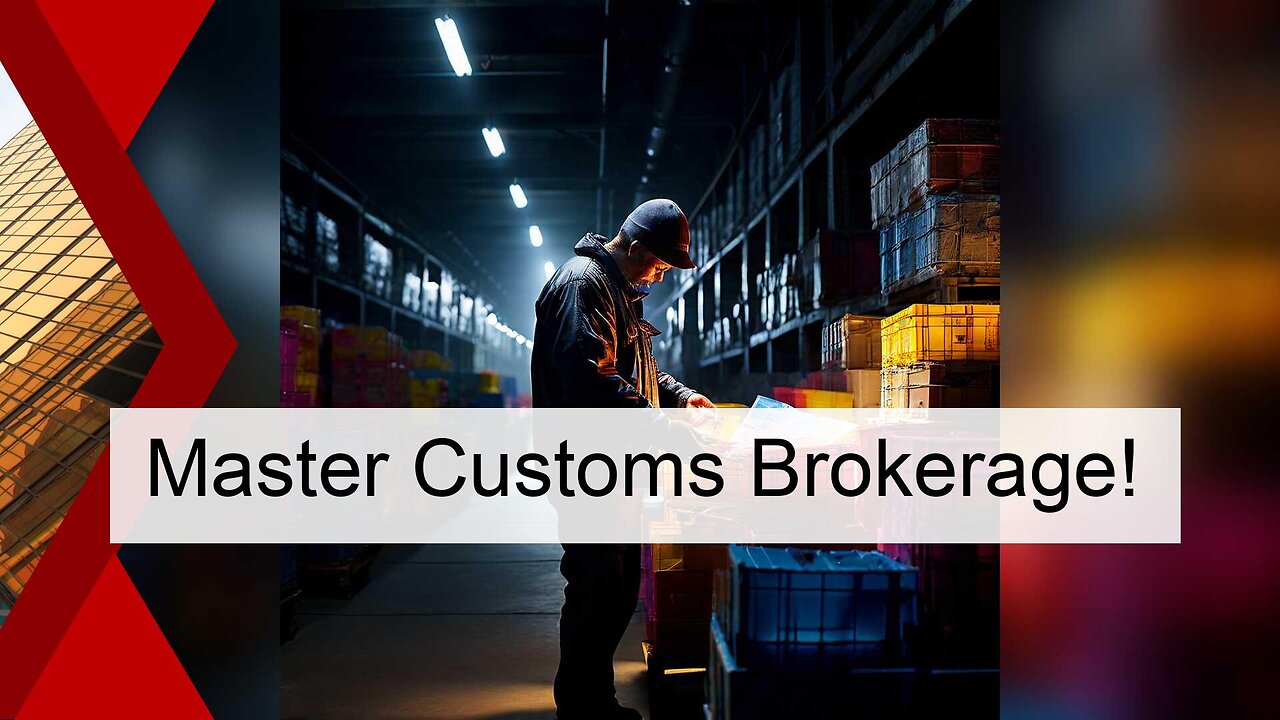Premium Only Content

Navigating Customs Compliance: ISF 10 2 and Advance Cargo Info
ISF Depot // 661-246-8217 // customs@isfdepot.com // www.isfdepot.com
Today's video provides an in-depth exploration of the customs brokerage field, with a focus on the importance of complying with US Customs and Border Protection regulations. Specifically, the video delves into two key topics: the Importer Security Filing (ISF) 10+2 and Advance Cargo Information.
The ISF 10+2 rule was established by US Customs and Border Protection to strengthen cargo security and facilitate risk assessment procedures. This rule necessitates that importers or their appointed customs brokers submit specific information regarding imported cargo prior to its arrival at a US port. Required information includes details about the importer of record, consignee, seller, buyer, ship-to party, manufacturer, country of origin, HTSUS code, container stuffing location, consolidator, and supplier.
Compliance with the ISF 10+2 rule is vital, as non-compliance can result in penalties and potential delays in cargo release. In the case of vessel shipments, the ISF 10+2 must be filed at least 24 hours before the vessel is loaded at the foreign port.
Advance cargo information is equally crucial in the customs clearance process. This information assists customs officials in assessing potential risks and implementing adequate measures. Required documents typically include a commercial invoice, bill of lading or airway bill, packing list, and other relevant shipment-related documents. This information enables customs authorities to verify the accuracy of the ISF 10+2 filing and determine if further examination or inspections are necessary.
Navigating the customs brokerage field and adhering to regulations can be complex. Customs brokers, licensed professionals specializing in customs procedures and regulations, are invaluable assets. They assist importers in accurately completing the ISF requirements, ensuring compliance with regulations, and managing the customs clearance process efficiently.
To summarize, compliance with customs brokerage regulations, such as the ISF 10+2 and advance cargo information, is vital for successful import operations. Fulfilling these requirements and partnering with experienced customs brokers streamlines the import process, minimizes the risk of penalties, and ensures timely delivery of goods.
00:43 - ISF 102
01:42 - Advance Cargo Information
02:35 - Customs Brokers
-
 3:27:04
3:27:04
Laura Loomer
11 hours agoEP103: Dems Promote Violent Anti-Trump Protests Nationwide
57.9K16 -
 6:50:08
6:50:08
Fairy Mysterious Adventures
9 hours agoStardew with the Rumble crew #16
44.4K2 -
 1:28:42
1:28:42
Kim Iversen
14 hours agoThe War on Terror Was a Scam? Is Osama Bin Laden Really Dead? SEAL Who Killed Him Breaks It Down.
82.8K158 -
 1:09:44
1:09:44
Slightly Offensive
11 hours ago $15.76 earnedALMOST SERIOUS: How Mass Legal Immigration DESTROYED Australia | Guest: Maria Zeee
83.7K31 -
 2:38:38
2:38:38
TimcastIRL
11 hours agoTrump Orders DOJ To FIRE EVERY Biden Attorney, Calls For CLEAN HOUSE w/Siaka Massaquoi | Timcast IRL
158K104 -
 1:29:31
1:29:31
Glenn Greenwald
14 hours agoGermany's Repressive Speech Crackdown Intensifies; U.S. & Russia Meet in Saudi Arabia and Open Cooperation; Plus: An Amazing Hate Crime in Florida is Buried | SYSTEM UPDATE #408
120K81 -
 1:30:48
1:30:48
Redacted News
15 hours agoBREAKING! TRUMP AND PUTIN NEARING PEACE BUT EUROPEAN WARMONGERS TRYING TO STOP IT | REDACTED
212K272 -
 52:40
52:40
Candace Show Podcast
15 hours agoSaturday Night Lively: What Were They Thinking? | Candace Ep 148
193K166 -
 3:30:06
3:30:06
Man in America
10 hours agoDocumentary: The Money Masters 'How International Bankers Gained Control of America'
70K13 -
 1:10:40
1:10:40
PMG
1 day ago $3.03 earnedTom Hanks Plays a Racist MAGA Supporter On SNL!! UNBELIEVABLE
34.3K8